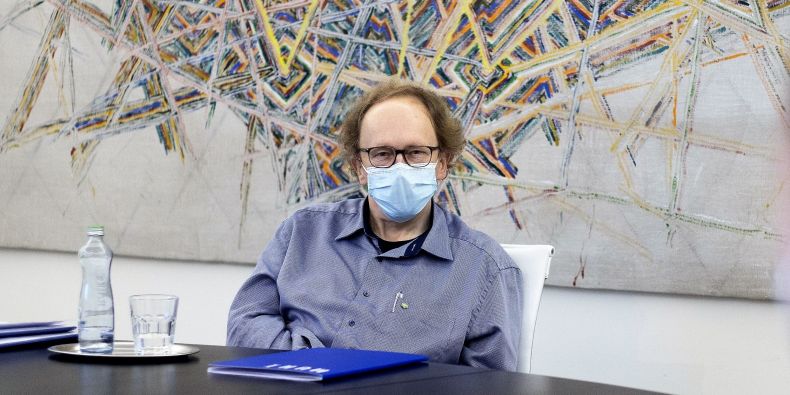What is most important to you, personally, about joining the Central European Institute of Technology (CEITEC)?
It is a serious challenge, but also an excellent opportunity. One could say I can finally put my ideas into action in order to promote Czech science. I would like to leverage my experience from the best research centres in the world to help CEITEC form connections and initiate co-operation with these famous institutions. This could include, for instance, collaboration on solving important research problems, sharing know-how in operational matters concerning science, career development and perhaps even finding a way to jointly apply for research funding, which is always in short supply. I want CEITEC to be an equal partner to these institutions and to become one of the leading research centres, at least in Europe. I believe we have a very good starting position here.
Could you name some of these institutions?
First of all, I’d definitely like to engage with the organisation I’ve done science at for the past fifteen years, that is the Max Planck Society, which is a global science leader with twenty Nobel Prizes in the modern era, two of which from the previous year. I’ve also had close contact with the European Molecular Biology Laboratory, where I worked on my doctorate in the late 1990s. And last year, I’ve been among the three finalists in the competition for a new scientific direction of the “Janelia Farm”, which is a prestigious institution under the Howard Hughes Medical Institute, the largest science philanthropy organisation in the USA. I have formed valuable connections there which I will try to leverage for CEITEC’s benefit.
What will be important for your work at CEITEC?
Aside from the aforementioned plan to form international networks, I would like to focus on redefining the consortium’s research agenda. CEITEC is unique because it combines science with technology. Contemporary science is incredibly multi-disciplinary, which gives us an opportunity to create a truly important science and research centre here in Brno that will serve as a bridge between fields that study living and non-living systems. We could, for instance, connect nanotechnologies and material science with advanced molecular biology in the area of plant systems, as well as with biomedicine. I would also like to focus on mentoring – that is helping junior researchers in their professional growth and career in order to succeed in the incredibly competitive international scientific scene. I have the necessary experience and, most of all, I really enjoy helping younger colleagues. There is nothing more interesting to me than discussing research with other scientists, because for most of us, science is a passion.
You are an alumnus of the Faculty of Science of Masaryk University. Can you tell us something about your time there?
I’ve spent my best years as a student at Masaryk University. In those days in the late 1990s, we had a great community there – a ‘circle’ of sorts, I don’t know if they still call it that. Many of my colleagues stayed with science, for example Karel Říha, who is now doing excellent science here at CEITEC MU. Others have succeeded in other fields, too. We have built a network of connections and still meet on a regular basis – usually in a cosy wine cellar somewhere in South Moravia. I really have great memories from my time in Brno and I am looking forward to taking a “šalina” to work again.
